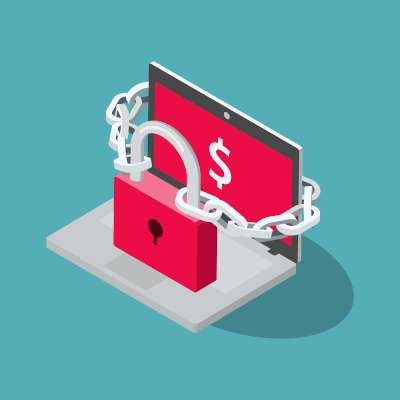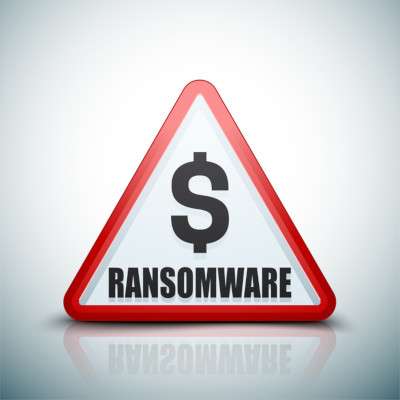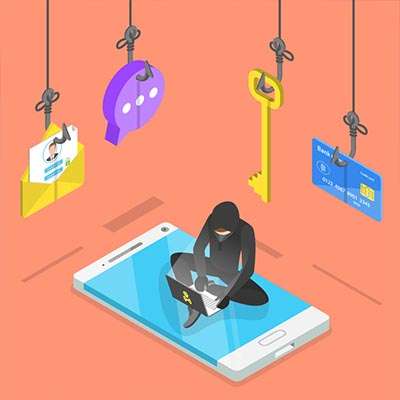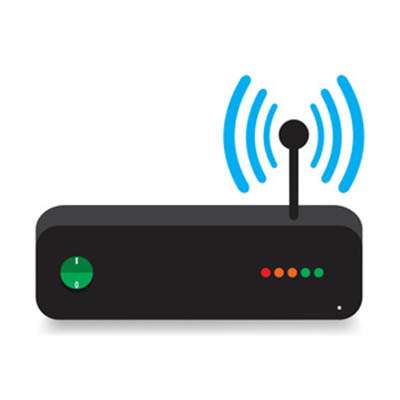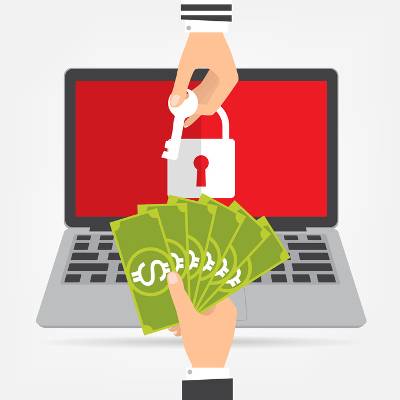It doesn’t matter if you are a small locally-owned business or a massive enterprise: network security is equally imperative, as all businesses by default collect valuable information for hackers. It makes sense to protect your valuable assets, and your data is one of them. A recent threat called Agent Tesla is just another example of phishing malware designed to steal data from businesses just like yours, regardless of how big it is.
Macro Systems Blog
According to a survey conducted by Splunk and Enterprise Strategy Group, more business leaders plan to funnel funding into their cybersecurity; 88 percent of respondents reported a planned increase into their investments, 35 percent reporting that these boosts will be substantial. Listed below are a few of the insights that this survey has revealed.
The rising popularity of ransomware has been disconcerting to many IT professionals, especially due to the different tactics that this malware variant has been spotted utilizing. In order to protect your business from these attacks, it helps to know how they work. Listed below is a beginner’s guide to ransomware types to help you identify and avoid them.
Your organization is susceptible to countless threats and vulnerabilities, all of which aim to harm your business. These hazards include all kinds of technology-related issues that cause downtime and other negative situations that your organization has to overcome. Listed below are some of the threats you face every day, as well as an appropriate response to each.
There was an era when we didn’t have to worry about catching computer viruses on our cell phones. However, with the exponential growth of mobile technologies, including application development options, mobile malware is now a problem, and it can become a significant problem for your business. Below we'll take a look at the increasing mobile malware market, including the risks and what you can do to keep it from being a problem for you.
Modern security solutions have made good strides to protect businesses, but there are still a lot of threats out there that can cause problems for your business. If you don’t take a proactive stance on security, you could leave your network vulnerable to incoming threats of all types. Macro Systems will help your business comprehend what threats are out there, why they are dangerous, and what you can do to keep your business secure.
With a limited market share that is one-third the size of Google’s, you would think that Bing would be trying to keep controversy away from a user’s search results. Nonetheless, the Microsoft search engine has recently experienced a few notable PR disasters that may be enough to persuade some not to use it.
Phishing scams have one of the most descriptive names in all of computing, mostly because of how similar phishing is with fishing. When someone goes fishing or phishing, bait is dangled in the hopes of getting a bite, and different types of bait can be used, depending on the catch one is trying to make.
Ransomware has been a serious threat to all kinds of organizations for a couple of years, and 2018 is no different. For those who are somehow unaware, ransomware is a form of malicious software that threatens the elimination of hijacked and encrypted data if a user doesn’t pay a ransom. It is known to be one of the most prolific and pervasive threats seen on the Internet today. Below we'll examine how ransomware has evolved over the past several years, what the future of ransomware looks like, and what you can do to protect yourself against it.
Every business owner must contemplate how to approach network security. This is especially true with the continuously-growing list of threats that face their organization’s network from simply being connected to the Internet. It may sound like an overstatement, but when considering what some huge corporations have dealt with very recently, it becomes evident that figuring out how to approach cybersecurity is one of the most vital considerations any business owner has to make.
Some cyber threats out there are dangerous enough to cause major entities to warn against them. Specifically, a recent malware called VPNFilter has been deemed hazardous and prevalent enough that the FBI has addressed it. Since the malware targets routers, it has significant potential to become a considerable problem for your business.
Cybercriminals and hackers, like most people, have a tendency to gravitate towards high-reward activities. In this instance, that means that focus is turning to developing malware that attacks the router, potentially infecting the users that leverage it to connect wirelessly to the Internet. Researchers at Kaspersky Lab discovered an example of such a malware; let's examine this threat and how to best protect your network.
One of the most popular methods of online hacking attacks involves what’s called a brute force attack. This is when a hacker overwhelms a login system with multiple attempts until the hacker is able to log in and access the system. They are dangerous attacks that could expose not just sensitive information, but also leave you vulnerable to ongoing hacks.
While security experts tend to focus the brunt of their discussions on desktop OS vulnerabilities, there are plenty of mobile malware threats that fly under the radar. One such malware is called Hummer; a trojan that installs unwanted apps and malware on a device, and can be found on over a million phones worldwide.
The Petya ransomware, a particularly vicious monster of a threat, has reared its ugly head once again, only this time, it’s not alone. Petya now comes bundled together with Mischa, yet another ransomware that works well alongside Petya. The ransomware is delivered via an inconspicuous email disguised as a job application, with a resume attached. Once the user downloads the file, Petya encrypts the files located on the device.
Security is one of the most important parts of running a business, especially today when organizations rely so heavily on their technology solutions. Some of the most dangerous threats lurk on a business’s network, watching and waiting for an opportunity to do some real damage. With the right preventative measures, your business can catch these threats in the act before they can accomplish their goals.
Has this ever happened to you? You come across a free app online that seems interesting, entertaining, or helpful so you decide to download it? However, as soon as you click the download button you regret it as it begins to install browser toolbars, adware, and other annoying (and potentially dangerous) software onto your device? How can you keep this “crapware” from getting too out of hand, and why is it so popular in the first place?



